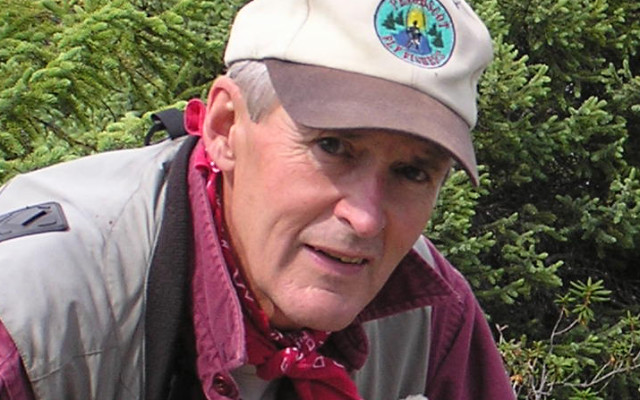
Bear hunting saved again
The Glowa petition, a perfectly legal maneuver by Maine anti-hunting activist John Glowa, was his groups’ third attempt to ban bear hunting as we know it in our state.
Thankfully, it has failed once again, apparently.
At a recent meeting of the Fish and Wildlife Advisory Council, state wildlife managers presented to Council members a thoughtful and comprehensive list of reasons why the Maine fall bear hunts are not only ethical and within the parameters of “fair chase,” but moreover are a critical component of bear population management and wildlife stewardship.
Here is an excerpt from IF&W’s Aug. 12 testimony to the council:
Hunters across the world have developed standards of conduct and methods of hunting that are viewed as acceptable and that are adapted to local conditions. In general, ‘fair chase’ means that the pursued animal always has a fair chance of escaping and the hunter does not have an unfair advantage during the hunt. Maine’s thick forests makes it difficult to hunt bears. In fact, only about 1 in 3 hunters that use bait to hunt bears in Maine are successful, which is a lower success rate than hunts for many other wildlife species. Hunting over bait allows hunters to get closer to bears, allowing them to avoid shooting bears with cubs and allowing better shot placement. All these aspects of hunting over bait provide for an ethical hunt.
In a clear, unequivocal statement of opposition to the Glowa petition, the Department made many of the same points that it presented so persuasively during the two previous anti-bear hunting referendums.
The Department is opposed to the petition for the following reasons:
Maine’s bear population goals, objectives, and management strategies were established through a public participatory process that included scientific public surveys, focus groups, public meetings, and an opportunity for public comment. None of the changes that would be enacted by the proposed rule were identified as priorities in Maine’s current bear management plan. In fact, maintaining and where appropriate expanding current hunting methods, including the use of bait, was identified as a high priority in the plan.
Maine’s bear population is increasing due to low hunter participation and harvest levels. Phasing out the use of bait (as currently defined) will reduce hunter success rates and lead to a further decline in bear harvest, increasing survival of adult females. This will cause the bear population to grow and expand more rapidly into southern and central Maine, where the potential for conflict with humans is highest. Maine’s current bear management plan seeks to prevent population growth in the southern and central portions of the state.
There is more work to be done. Glowa’s two other petitions, which would ban coyote hunting and coyote trapping respectively will be heard by the Advisory Council later in September.
In addition to the aforementioned anti-hunting petitions, Glowa continues to use legal avenues in an effort to shut down Maine’s annual moose hunt. A superior court judge recently dismissed his request
for the courts to suspend this fall’s moose hunt via an injunction. The judge ruled that “the plaintiff (Glowa) had no standing and dismissed the case with prejudice.”
Unfortunately, anti-hunting activist Glowa does not understand or appreciate the role that hunting plays in professional wildlife management. Thankfully, a majority of Maine citizens accept and support our professional wildlife biologists and their compelling scientific arguments.
As for the remaining petitions on coyotes, we can only hope that IF&W wildlife managers stay the course. We will know in September. Stay tuned.
___________
The author is editor of the “Northwoods Sporting Journal.” He is also a Maine guide and host of a weekly radio program — “Maine Outdoors” — heard Sundays at 7 p.m. on “The Voice of Maine News -Talk Network.” He has authored three books; online purchase information is available at www.maineoutdoorpublications.com. or at www.sportingjournal.com. Contact email is: vpaulr@tds.net.